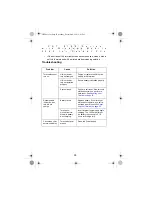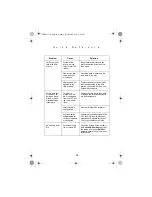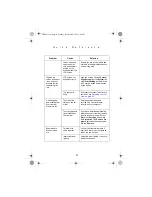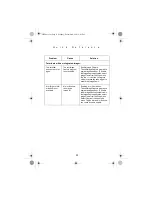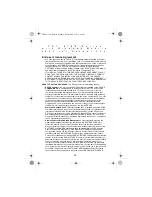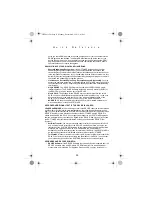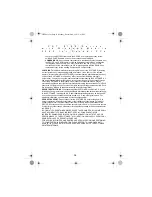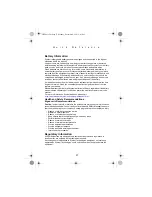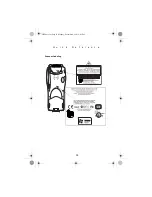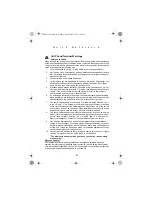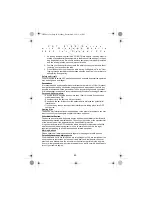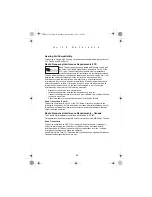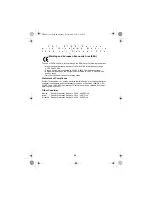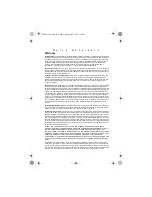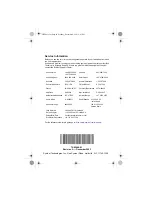
41
Q
u
i
c
k
R
e
f
e
r
e
n
c
e
Cell Phone/Terminal Warnings
Safety on the Road
When driving a car, driving is your first responsibility. Check the laws and regulations
on the use of wireless phones in the areas where you drive. Always obey them. When
using your wireless device / phone behind the wheel of a car, practice good common
sense and remember the following tips:
1.
Give full attention to driving -- driving safely is your first responsibility;
2.
Get to know your wireless device and any features such as speed dial and re-
dial. If available, these features help you to place your call without taking your
attention off the road.
3.
When available, use a hands free device.
4.
Let the person you are speaking with know you are driving; if necessary, sus-
pend the call in heavy traffic or hazardous weather conditions. Rain, sleet,
snow, ice, and even heavy traffic can be hazardous.
5.
Dial sensibly and assess the traffic; if possible, place calls when you are not
moving or before pulling into traffic. Try to plan calls when your car will be sta-
tionary. If you need to make a call while moving, dial only a few numbers,
check the road and your mirrors, then continue.
6.
Do not engage in stressful or emotional conversations that may be distracting.
Make people you are talking with aware you are driving and suspend conver-
sations that have the potential to divert your attention from the road.
7.
Use your wireless phone to call for help. Dial the Emergency services, (9-1-1
in the US, and 1-1-2 in Europe) or other local emergency number in the case
of fire, traffic accident or medical emergencies. Remember, it is a free call on
your wireless phone! The call can be made regardless of any security codes
and depending on a network, with or without a SIM card inserted.
8.
Use your wireless phone to help others in emergencies. If you see an auto ac-
cident, crime in progress or other serious emergency where lives are in dan-
ger, call the Emergency Services, (9-1-1 in the US, and 1-1-2 in Europe) or
other local emergency number, as you would want others to do for you.
9.
Call roadside assistance or a special non-emergency wireless assistance
number when necessary. If you see a broken-down vehicle posing no serious
hazard, a broken traffic signal, a minor traffic accident where no one appears
injured, or a vehicle you know to be stolen, call roadside assistance or other
special non-emergency wireless number.
10. Connection to an alert device that will cause a vehicle horn to sound or lights
to flash, on receipt of a call on public roads, is not permitted.
"The wireless industry reminds you to use your device / phone safely
when driving".
Effect on Vehicles
RF signals may affect improperly installed or inadequately shielded electronic
systems in motor vehicles (including safety systems). Check with the manufacturer
or its representative regarding your vehicle. You should also consult the manufacturer
of any equipment that has been added to your vehicle.
6598801a.fm Page 41 Monday, December 8, 2003 2:01 PM


